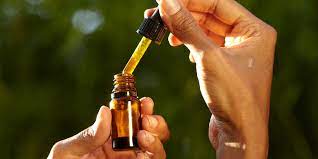Introduction
In recent years, CBD (Cannabidiol) has gained significant attention for its potential health benefits, especially among seniors. As the quest for natural wellness solutions grows, understanding the role of CBD in managing age-related issues becomes crucial. This blog aims to demystify CBD, highlighting its benefits, appropriate dosages, safety considerations, legality, and usage methods for seniors seeking a holistic approach to health.
Understanding CBD

CBD is a naturally occurring compound in the cannabis plant, known for its therapeutic properties without the psychoactive effects typically associated with marijuana. It interacts with the body’s endocannabinoid system, influencing various physiological processes. This section will explain how CBD works in the body and why it’s becoming a popular supplement among older adults.
Benefits of CBD for Seniors
- Pain Relief: One of the most significant benefits of CBD for seniors is its potential to alleviate chronic pain, a common issue in older adults. CBD’s anti-inflammatory properties can help reduce discomfort associated with conditions like arthritis, neuropathy, and joint pain, improving overall quality of life.
- Improved Sleep Quality: Many seniors struggle with sleep disorders or disrupted sleep patterns. CBD can aid in regulating sleep by addressing the root causes such as anxiety, pain, and restlessness, leading to a more restful and uninterrupted night’s sleep.
- Anxiety and Depression Management: Mental health is crucial at any age. CBD has shown potential in reducing symptoms associated with anxiety and depression. Its calming effects on the brain and nervous system can help seniors feel more relaxed and emotionally balanced.
- Neuroprotective Properties: Research suggests that CBD may have neuroprotective properties. This is particularly relevant for seniors, as it could potentially play a role in managing age-related cognitive decline and diseases like Alzheimer’s and Parkinson’s.
- Bone Health: As people age, their bones can become more fragile. CBD may aid in promoting bone health by enhancing the repair process and strengthening bones, potentially reducing the risk of fractures.
- Heart Health: CBD may have a positive impact on heart health by reducing high blood pressure and managing stress levels, both of which are significant risk factors for heart diseases commonly found in seniors.
- Reduced Inflammation: Chronic inflammation is linked to many age-related diseases. CBD’s anti-inflammatory effects can be beneficial in reducing such inflammation, potentially lowering the risk of certain illnesses like heart disease and diabetes.
- Enhanced General Well-being: Beyond addressing specific health issues, CBD can contribute to overall wellness in seniors. Its potential antioxidant effects can support the body’s ability to repair itself, maintain a balanced state, and enhance general well-being.
In summary, CBD offers a multifaceted approach to health and wellness for seniors, addressing physical, mental, and general health concerns. Its natural properties make it an appealing option for those seeking alternatives to traditional medications.
Proper Dosage and Safety
Determining the proper dosage of CBD and ensuring safety are crucial, especially for those new to using it. Here are key points to consider:
Understanding CBD Dosage
- Start Low and Go Slow: Begin with a small dose, especially if you are new to CBD. Gradually increase the dosage until you find the right balance for your needs.
- Consult Healthcare Providers: It’s important to talk to your doctor before starting CBD, especially if you have existing health conditions or are taking other medications.
- Dosage Depends on Various Factors:
- Body Weight: Heavier individuals may require a higher dose.
- Individual Tolerance: People react differently to CBD; some may need more to achieve desired effects.
- Condition Being Treated: More severe conditions might require higher dosages.
- Follow Product Guidelines: Use the recommended dosage on the product label as a starting point.
- Keep a Dosage Diary: Track your dosage and effects. This can help in finding the optimal dose.
Safety Considerations

- Side Effects: CBD is generally well-tolerated, but some may experience mild side effects like dry mouth, drowsiness, or gastrointestinal discomfort.
- Interaction with Other Medications: CBD can interact with certain medications, altering their effectiveness. Always consult with a healthcare provider about potential interactions.
- Quality of Product: Choose high-quality CBD products from reputable sources. Look for products that have been third-party tested and have clear labeling of CBD content.
- Legal Considerations: Ensure that the CBD product is legal in your area. In some regions, only CBD derived from hemp with low THC levels is legal.
- Avoiding THC: If you want to avoid psychoactive effects, opt for broad-spectrum or isolate CBD products, which contain no or minimal THC.
- Pregnancy and Breastfeeding: CBD use is not recommended during pregnancy or breastfeeding due to a lack of research on its safety.
- Age Considerations: Seniors should be particularly cautious with CBD due to potential interactions with other medications and age-related health issues.
Legality and Quality Considerations
The legality of CBD varies by location and is often tied to its source (hemp vs. marijuana) and THC content. We’ll clarify these legal nuances and offer advice on selecting high-quality, legally compliant CBD products.
Methods of Taking CBD
CBD (Cannabidiol) can be consumed in various forms, each offering unique benefits and methods of absorption. Here are some common methods of taking CBD:
- CBD Oil and Tinctures:
- Usage: Typically administered under the tongue using a dropper. The CBD is absorbed directly into the bloodstream through the mucous membranes in the mouth.
- Benefits: Fast absorption and easy to adjust dosage. Ideal for those who want quick effects.
- CBD Capsules and Pills:
- Usage: Swallowed and absorbed through the digestive tract.
- Benefits: Convenient and discreet, with a pre-measured dose. Suitable for those who prefer a consistent dosage and don’t like the taste of CBD oil.
- CBD Edibles:
- Usage: Ingested as food products such as gummies, chocolates, or baked goods.
- Benefits: Tasty and easy to consume. The effects are delayed as the CBD is released slowly during digestion.
- CBD Topicals:
- Usage: Applied directly to the skin. Includes creams, balms, lotions, and salves.
- Benefits: Targeted relief to specific areas of the body. Useful for localized pain or skin conditions.
- CBD Vapes:
- Usage: Inhaled through a vaporizer or vape pen.
- Benefits: Fastest absorption into the bloodstream through the lungs. Preferred by those seeking immediate effects.
- CBD Patches:
- Usage: Adhered to the skin, releasing CBD slowly over time.
- Benefits: Consistent, slow release of CBD. Good for continuous relief over several hours.
- CBD Beverages:
- Usage: Consumed as infused drinks like teas, coffees, or water.
- Benefits: Hydrating and easy to incorporate into daily routine. Offers a subtle way to consume CBD.
Each method has its own onset time and duration of effects. For instance, inhalation provides quick relief, while edibles and capsules might take longer to kick in but offer longer-lasting effects. It’s important to choose a method that aligns with your specific needs and lifestyle. Additionally, starting with a low dose and gradually increasing it is recommended, especially for those new to CBD.
Conclusion
CBD presents a promising natural alternative for seniors looking to enhance their health and well-being. With its potential to address multiple age-related concerns, it’s important to approach its use with an informed and cautious mindset. By understanding its benefits, proper dosage, safety, and legal aspects, seniors can make educated decisions about incorporating CBD into their health regimen.
